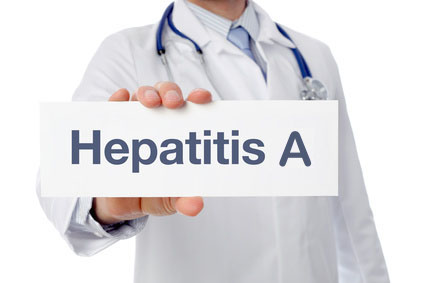
What is Hepatitis A?
What is hepatitis A?
Hepatitis A is a contagious, acute (new) liver disease that, unlike hepatitis B and C, does not become chronic (long- term). Hepatitis A is a virus and its infections can be mild and last a few weeks, or severe and last several months. People with hepatitis A are typically cured of the virus without treatment and often only need proper rest and fluid intake.
According to the Centers for Disease Control and Prevention (CDC), hepatitis A transmission is decreasing in the United States. Getting tested is important if you have travelled or have lived in locations like Mexico, Eastern Europe, Africa, Central or South America, or certain parts of Asia where hepatitis A is prevalent. To prevent infection, the hepatitis A vaccine can safely and effectively reduce your risk of transmission.
How is hepatitis A transmitted?
The hepatitis A virus can be contracted or spread when a person ingests infected fecal matter through contact with objects, food or drinks that carry the virus even in microscopic amounts. Hepatitis A can also be transmitted during oral-anal sexual contact with an infected person. Since symptoms are often mild or not apparent, a person can transmit the virus to others up to two weeks before symptoms appear.
What are the symptoms of hepatitis A?
Although not always present, hepatitis A symptoms include fever, fatigue, loss of appetite, nausea, vomiting, abdominal pain, dark urine, clay-colored bowel movements, joint pain and jaundice (a yellowing of the skin or eyes). If present, symptoms usually appear as early as several days or two to six weeks post-exposure. Acute hepatitis A symptoms usually last less than two months, but can last up to six months.
Is there treatment for hepatitis A?
There is no treatment for hepatitis A. Individuals with the virus might feel sick for a few months before getting better. Doctors recommend adequate nutrition, rest, staying hydrated and receiving monitoring by a specialist. Liver damaging substances like alcohol and certain medications should be avoided if you have hepatitis A.
How can I prevent getting hepatitis A?
The best method for preventing hepatitis A is to get vaccinated. The CDC recommends getting a shot of immunoglobulin before traveling or if you are at a high risk of contracting the virus. Another way to help prevent contracting the hepatitis A virus is to thoroughly wash your hands with soap and hot water after using the bathroom or changing a diaper, and before and after preparing food.




